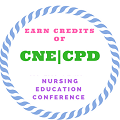
Josée Bonneau
Ingram Schhol of Nursing, McGill University, Canada
Title: Developing Ethical Fitness in nursing students
Biography
Biography: Josée Bonneau
Abstract
There is an inherent moral dimension that pervades all of nursing practice: That being said the development of this competency is very inconsistent across nursing education. Strategies that foster the development of ethical reasoning in nursing students are still to this day anchored in traditional teaching methods such as theoretical theories and case study learning. As nursing strives to maximize good (comfort, dignity, quality of life) and minimize bad (pain, suffering) in health and illness. It is important to emphasize that patients of nursing care are vulnerable and that every nursing interaction carries a potential for help and a potential for hurt. In everyday practice, nurses engage, interpret, shape, and respond to the moral experience of patients and families in their care. Wright & Brajtman (2011). How can educators foster the development of ethical competencies in nursing students? Developing ethical fitness in an innovative way can foster the interest, participation and engagement of nursing students and it can also create favourable conditions for the development of ethical reasoning. Kidder argues that ‘’Ethical fitness needs to be developed and maintained. It requires being mentally engaged, thinking, reasoning, grappling with difficult situations or their potential, on a regular basis, as well as a commitment to finding better ways to reach good outcomes’’ Kidder (2009). Being ethically fit is about how one prepares to make good choices and take actions that benefit others’’… Nurses are urged to become vigilant about proactively raising questions of value in their everyday nursing practice’’. Storch et al. (2009). Taking the time to reflect on personal and professional values and beliefs, knowing ones strengths, being aware of the code of Ethics of his/her profession, understanding how the context of health care and nursing influence moral distress, identifying strategies that develop ethical fitness and promoting interventions that are in the best interest of the client are just a few ways that nursing students can develop ethical competencies. The purpose of this workshop is to further discuss and explore innovative pedagogical strategies that foster the development on ethical competencies in nursing students

